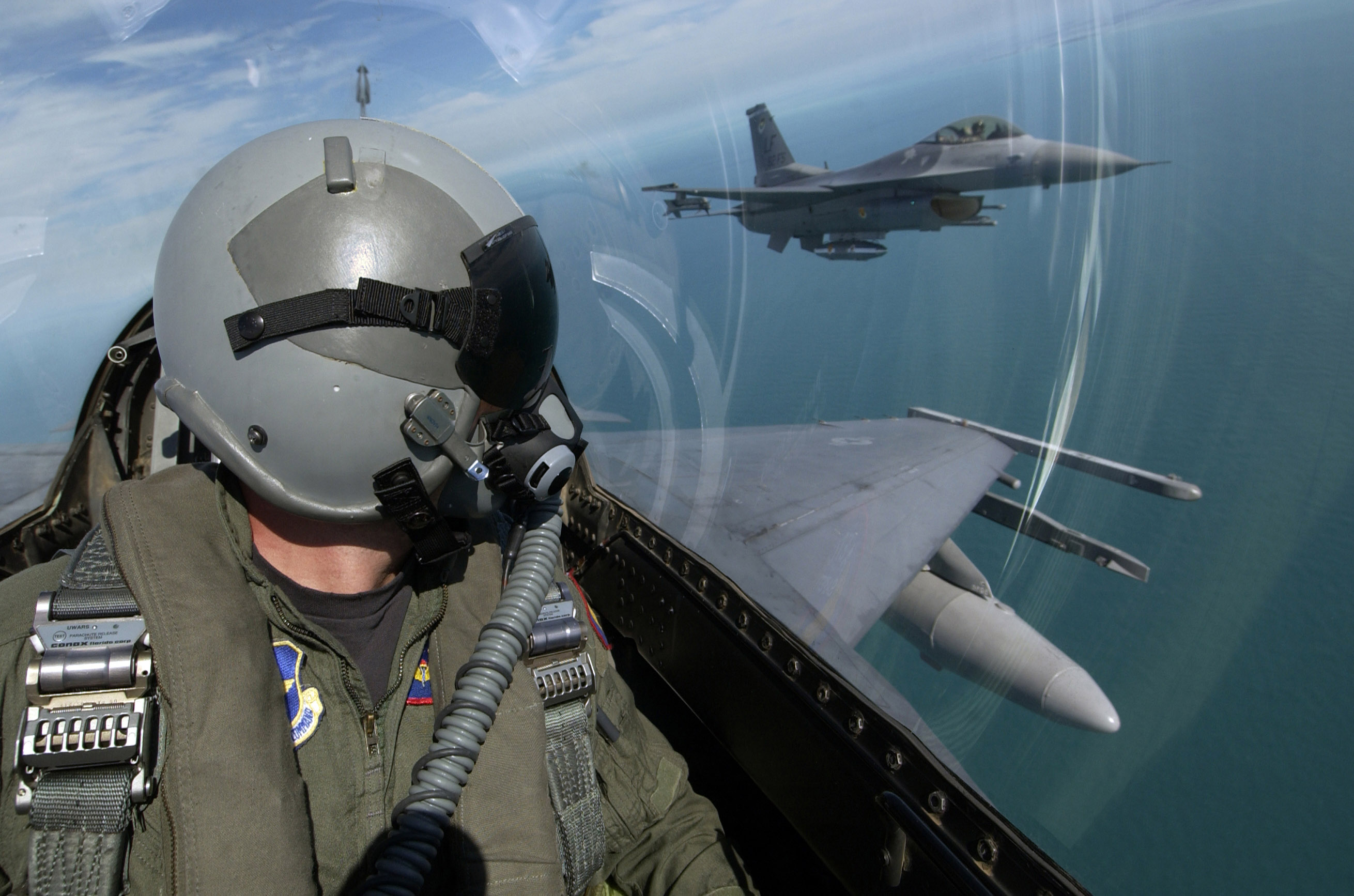On the morning of 11 September 2001, four commercial airliners were hijacked and used as weapons for suicide attacks. In the wake of the attacks, some countries have enacted policies allowing a hijacked passenger aircraft to be shot down should it be necessary. This has left these states with the ethical dilemma of deciding which is more important- state security or human dignity. Of the many states facing this concern, Germany has demonstrated to be one of the few to consciously adhere to its Basic Law, striving to balance state security and human dignity.
Germany’s Constitutional Balance
In a new security-oriented paradigm, former Federal President Horst Köhler reluctantly signed Germany’s Aviation Security Act in June 2004, which came into effect on 15 January 2005. This legislation would allow the Bundeswehr (German armed forces) to take down a hijacked aircraft if it were to be used against the life of others. On 15 February 2006, the German Federal Constitutional Court (FCC) deemed the provision of the Aviation Security Act unconstitutional because it was incompatible with Germany’s Basic Law.
[captionpix align=”left” theme=”elegant” width=”300″ imgsrc=”http://natoassociation.ca/wp-content/uploads/2013/06/bundeswehr.jpg ” captiontext= “A Tornado of the German Air Force.”]
The FCC declared that sacrificing a small number of innocent lives for the greater good could not be justified. This would violate the human dignity clause in Article 1(1) of the German Constitution, which states, “Human dignity shall be inviolable. To respect and protect it shall be the duty of all state authority.” If a hijacked aircraft were shot down, that would subordinate human dignity by treating it as a quantifiable entity. It converts people into things, subsequently delegalizing them. This correspondingly violates Article 2(2) which articulates, “Every person shall have the right to life and physical integrity. Freedom of the person shall be inviolable. These rights may be interfered with only pursuant to a law.” For this reason, human beings cannot be unlawfully killed by another human, indicating that national security concerns do not supersede the life of individuals.
It is worthwhile to understand how Germany’s administrative security framework operates. The federal government, being in charge of the military, has the authority to shoot down an aircraft in military combat. This is for defence purposes only, and it is to ensure Germany’s state security beyond its borders. Federal states are responsible for police powers. The prevention of potential attacks in Germany thus would be in the jurisdiction of the states. The federal government can assist states in exceptionally grave situations, but they cannot use military powers for domestic purposes. If the federal government were to lend its assistance, it could only do so using the same powers that the police are allowed. If there were ever a case where Germany was attacked, it has the means to protect itself and to respond efficiently, but it would typically be after an attack since the country is against making the first strike. The way that Germany aims to prevent threats against potential terrorist attacks is by providing intensive security checks in high-traffic risk-prone areas, and to reduce the causes of terrorism. The country plans to do this by taking part in missions that promote international peace, build, and maintain order.
The only instance where the Aviation Security Act would be compatible with Germany’s Basic Law would be an aircraft with no hostages on board. Even though the hijackers are human, they are regarded as persons intentionally acting against the Basic Law; therefore they are not treated the same way as individuals with dignity or the right to liberty.
Tipping the Scale: National Security over Life
After 9/11, policymakers everywhere sensed an obligation to tighten defence measures to ensure a certain standard of security. Some states saw the downing of a hijacked commercial airliner to be a countermeasure if clearing the situation was not feasible. In this case, the loss of a hundred lives would be a small sacrifice to save the lives of many more.
In the hours following the attacks on the World Trade Center and the Pentagon, former US Vice President Dick Cheney authorized the downing of any further passenger aircrafts that may have been compromised. The US viewed the hijacked planes as weapons that needed to be restrained from causing greater damage. Within a few short years, US fighter pilots have been prepared to strike commercial aircrafts in the event that a similar terrorist attack would take place. The US may be training its Air Force to handle potential hijackings, but there is no official policy equivalent to Germany’s Aviation Security Act. US Air Force General Ralph Eberhart explained that the fighter pilots practice as often as four times a week, and they undergo extensive psychological evaluations to handle taking down a plane. The General assures that shooting down a suspicious passenger airliner would only be used as a last resort. “If we don’t do this, innocent people on the ground are going to die.”
There are other states that have followed a similar path as the US to prevent such attacks, namely the Czech Republic, France, Hungary, Italy, Russia, and the UK. India is an example of a state that firmly adopted an anti-hijack policy in August 2005. This would allow the Indian Air Force to shoot down a hijacked aircraft so long as there is conclusive evidence that the plane is going to be used as a missile. The policy rules out negotiations with hijackers on their demands; which makes it clear that talks would only be used for the purpose of preventing the loss of life or putting an end to the incident. If the Air Force believes they can prevent shooting a civilian airliner, it is authorized to guard and guide the aircraft and force landing at an Indian airport. Appropriately, all efforts would be made to immobilize the plane from taking off again.
After 9/11, all commercial airliners were given instructions to return to their original take-off location. For the en route flights that did not have enough fuel to return, they were asked to land at the nearest Canadian airport until critical details were sorted out. A Korean Air flight heading to Anchorage, Alaska gave authorities reason to believe that the plane had been hijacked. NORAD was prepared to shoot down the plane in Anchorage. Instead of putting more people at risk in a populated area, NORAD received permission from former Canadian Prime Minister Jean Chrétien to direct the plane to Whitehorse, Yukon. Prime Minister Chrétien also gave instructions to shoot the potentially hijacked airliner if it would threaten any Canadian cities. Canada’s response to hijacked aircrafts is similar to many other countries, although there is no definite policy on how to respond to future hijackings. Over a decade ago, Canada was willing to down a hijacked aircraft. This could be taken as evidence that Canada is willing to sacrifice a few lives in order to preserve the lives of many.
In comparison to the listed states, Poland has presented an interesting case. In January 2005, a new law was passed that gave Polish authorities the power to order a hijacked airliner to be shot down. Civilian and military aircraft could be shot down if its hijackers refused to land. This law was in effect until September 2008. Poland eventually came to the decision that the regulation of downing a hijacked aircraft was unconstitutional. There is no definite evidence proving that Poland was influenced by its neighbour, Germany. Regardless, Warsaw made the conscientious effort to appropriately balance state security with the fundamental rights of human life.
Teetering for Equilibrium
Germany has been an exemplary case of attempting to find that tricky balance between state security and human dignity. It may be criticized for placing individual human life above the security of the masses. Germany’s government and Constitution have been influenced by its historical experience of totalitarianism. This explains why it has particular constitutional limitations that will not allow a hijacked aircraft with innocent people to be materialized as an inanimate weapon. The FCC treats state security as only one of many competing constitutional values as opposed to an absolute value. In the Constitution, state security is not something that can be guaranteed at a cost. Germany can teach other states from its experience with the struggle to respect constitutional commitments to human dignity while maintaining state security.
In the words of Germany’s former Federal Constitutional Court President Jutta Limbach, “Blind revenge and hate only bring self-destruction. If the civilized world hopes to be victorious it cannot allow itself to compromise its respect for its fundamental values. Especially the recognition of the dignity and freedom of humankind distinguishes democracy from totalitarian ideologies. Human dignity and human rights know no weapons; rather, only citizens who make the observation of human dignity and human rights an obligation.”
9/11 has changed the way state officials manage multi-level defence policies. There is now an additional variable involving the value of a human life. There is no correct way to address the moral and practical issues of downing a hijacked commercial aircraft. It eventually comes down to the way in which an individual state values national security and human dignity.




